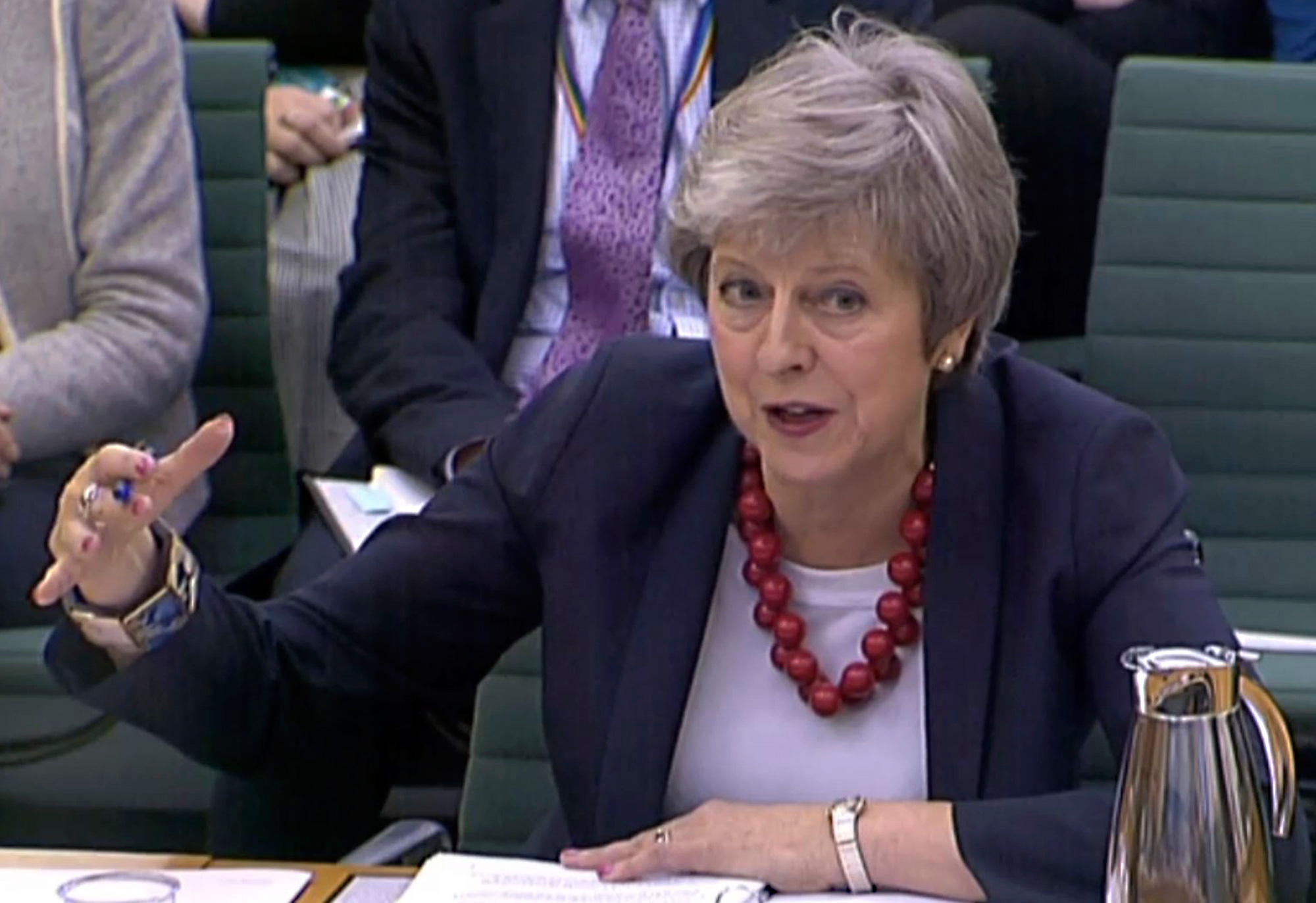Britain’s Brexit convulsions arouse little interest in this country. India’s only concern is with additional special visas so that talented young Indians who have few opportunities in a sluggish domestic economy can work in Britain as researchers or post-graduate trainees. But a former colony cannot miss the imperial nostalgia laced into near-hysterical assertions of “taking back control” that recall Dean Acheson’s jibe about Britain losing an empire and not finding a role. More to the point, the prospect of consolidating a trading bloc that is the nearest approach to a global community fascinates all mankind. It would be tragic to squander that opportunity without another reference to the British people.
Our own South Asian Association for Regional Cooperation, the Association of Southeast Asian Nations, North American Free Trade Agreement, Gulf Cooperation Council, and other such tentative organizations seek to follow in the European Union’s footsteps. It was — and is — the model that inspired a fractured and warring world. That model is threatened now by the fanciful self-view of a disgruntled member whose fantasies of being a global power centre are kept alive by the Commonwealth whose trappings are more visible in London than in any Afro-Asian capital. Last Monday’s explosive Commons debate didn’t mark (adapting Churchill) the end of the crisis or the beginning of the end, but only the end of the beginning. If Britain can reject “a European super-state exercising a new dominance from Brussels”, to quote the “Immaculate Misconception”, a Tory wit’s name for Margaret Thatcher, why can’t Scotland reject Britain? “Brexit strengthens the argument for Scotland to be independent,” says Scotland’s first minister, Nicola Sturgeon. Wales might follow. Even Cornwall’s Mebyon Kernow —Party for Cornwall — demands devolution.
What now? The death of a dream is prolonged and tedious. Britain’s Parliament will vote on December 11 on the 585-page divorce settlement that EU governments have approved. In the highly unlikely event of Westminster’s assent, it will have to be formally endorsed by the European Council and European Parliament. If the British Parliament turns it down, Theresa May will probably try to renegotiate the settlement by asking for better terms which are not likely to be conceded. It’s been said that the EU cunningly made the deal as unattractive as possible for Britain so as to discourage other dissatisfied members taking the same path. If May does come up with a new text, the council must vote and submit it to the European Parliament so that all formalities are finalized before March 29, 2019. Taking into account delays because of Christmas and New Year, May doesn’t have much time.
There remains the illusion of her famous “No deal is better than a bad deal” slogan. The public was encouraged to believe Britain could walk out of the EU and into a halcyon past of second class railway carriages, half-crowns, Greenwich Mean Time and all that Britain was before joining the EU, without any Romanians, Poles or other Continentals (a seldom-heard word nowadays) around. The Bank of England and the government’s own economists have poured cold water on that myth by pointing out the huge cost of severance, with or without agreement. The figures show conclusively that Britain outside the EU will be a poorer, diminished country with a shrunken economy and a much lower gross domestic product. Where it is now one of the decision-makers in an important 28-nation group, it will then beg for crumbs from the high table in Brussels. Donald Trump isn’t the only leader to be contemptuous of a stand-alone Britain. Other states might still seek trade agreements but, being committed to promoting their own interests, will demand a stiff quid pro quo like India’s insistence on special category visas.
It’s heads-I-win-tails-you-lose. Britain and the EU have been integrated for four decades. Leaving the bloc was always going to be unpredictable and complicated, no matter how it happened. Two-and-a-half years of negotiations have made it abundantly clear that a clean break that respects British sovereignty and honours the Good Friday Agreement that brought peace to Northern Ireland is out of the question. Splitting trade quotas between Britain and the EU is one contentious issue. Fishing is another. British hackles rose earlier this week at Emmanuel Macron’s “bizarre suggestion” (the British chancellor’s term) that European fishermen can continue to exploit British waters as before Brexit. Differences over fishing explained Greenland’s exit in 1985 and accounted for two Norwegian referendums (1972 and 1994) rejecting EU membership. The proposed customs union excludes services which make up 80 per cent of Britain’s economy and 40 per cent of its exports to the EU. While the withdrawal agreement can pass by qualified majority, any future trade agreement involving “mixed competences”, where some powers are exercised by the EU and others by individual countries, will need unanimous support from EU members. This is not mere rubber-stamping because regional interests can arouse fierce loyalties. In 2016, the local parliament of Wallonia, Belgium’s French-speaking province which has fewer than four million people, held up the EU’s free trade agreement with Canada which had been on the anvil since 2009.
These problems are nothing compared to the threats May faces at home. Many of those who oppose the agreement do so without having read a word of those 585 pages. Their objections are visceral; European unity was acceptable only as another never-to-be-realized theory like world government and an effective United Nations. It has been dinned into them that EU membership means an unchecked influx of Continentals who squeeze them out of hearth and home and grab the welfare state’s free social services. Pressured, May apologized for speaking of “queue-jumping” Europeans but the damage was done. The phrase played to the ultra-nationalist gallery and sanctified public prejudice, substantiating the fears of those who believe Brexit will benefit only the right-wing populist UK Independence Party. Yet, untrammelled sovereignty is a thing of the past. All the major challenges of the day — climate change, trading patterns, information technology, epidemics, pollution, to name only a few — are global. The solutions must also be global.
Other variants of Sturgeon’s threat could be more dangerous for being more imminent. May’s worst enemies being her best friends, she cannot heal or excise the suppurating sore that is poisoning British politics. Deafened by the grinding of axes while Jeremy Corbyn’s Labour Party creeps past her Tories in the popularity stakes, and rebels like Jacob Rees-Mogg strive to muster the 48 signatures needed to demand a leadership contest (they had 23 at last count), it won’t be easy to win over Leave MPs. Many represent constituencies with robust anti-EU sentiment. If they change their position and throw their weight behind an amended, albeit substantially unchanged, version of May’s current deal, they might not be re-elected again.
As possibilities like a rank-and-file Conservative revolt, an early general election instead of waiting for 2022, or even a “national government” (last seen in peacetime Britain between 1931-40) are discussed, a second referendum is clearly the obvious and only way of breaking the stalemate. The outcome of the 2016 referendum was too narrow (51.89 per cent to 48.11) to be allowed to destroy a dream that is the world’s more than any one country’s. No one knew then how impoverished, inconsequential and isolated Brexit would leave Britain. A Remain outcome this time should convince even the more than 90 Conservative parliamentary diehards who have promised to vote against a settlement that they will be going against the will of the people. If a convincing majority is still determined to leave, so be it — “Those whom the gods wish to destroy they first make mad”. Even India might then drop its demand for additional special category visas. Unless, of course, conditions here are so dire that even an impecunious Britain seems like paradise.










